The Story
Act 1 – In the provinces at the château of the Countess of Coigny, 1789
In the Château de Coigny the ever-growing disparity between the nobility and the Third Estate becomes clear during the preparations for an ostentatious party. The servant Gérard is, in contrast to the decadent exuberence, on the one hand, like his old father who must still work, despite his frailness and weakness, but on the other, clearly convinced that the end of the aristocracy has arrived. The attending guests discuss the impending societal upheavals and are subsequently distracted and amused by a recital of shepherding songs. At the party, the young poet Andrea Chénier refuses to spontaneously read a poem, a move construed as impolite. Egged on by Maddalena, the Countess of Coigny’s daughter, Chénier finally gives a speech disguised as a poem, cynically mocking the love for the aristocracy and criticising the mercilessness of the nobility towards the lower social classes. This, however, is completely ignored by the guests, causing the poet to leave the party. Only two people agree with him: Maddalena, who does not hide her enthusiasm, and Gérard, who has observed everything from the background. He then later bursts into the celebrations, together with beggars and poor people, in order to show the nobles the misery they have caused. Disgusted at the miserable scene, the Countess throws the crowd out of her house and fires Gérard, before continuing the party as if nothing had happened.
Act 2 – A Paris street, 1794
The public surveillance conducted by Robespierre’s spies clearly shows the misery of the French Revolution’s darkest months. Maddalena’s handmaid, the mixed-race Bersi, converses with an incroyable, secretly spying for the state, who recognises her as a confidant of the missing Maddalena and registers her as a suspicious person. Chénier, who is disappointed at the direction the Revolution is taking, is being sought by the police and consequently pressured by his friend Roucher to flee Paris. The poet hesitates, however, while his inner voice says that he could finally experience real love for the first time. An unknown lady has written him a letter and he is determined to meet her. The meeting with the secretive woman exposes her true identity as the help-seeking Maddalena, who describes her precarious situation to Chénier. During the revolution, her whole family was killed and their château burned down. Without possessions and, as aristocracy, still in grave danger, Maddalena turns to the poet for aid. Her defencelessness spurs Chénier to help her unconditionally and ignites the flames of love within him. Suddenly, Gérard, now a confidant of Robespierre, appears having learned of Maddalena’s whereabouts from an incroyable. Ever since his time as a servant at the Château de Coigny, he has been in love with the young lady and deployed spies to find her. Gérard’s attempt to take possession of his earlier mistress is thwarted by Chénier, and a duel ensues between the two men. The wounded Gérard demands that his conqueror, whom he now recognises, flees. Gérard keeps the fact that the fleeing man is the sought-after Chénier secret from the onrushing guards.
Act 3 – In front of the Revolutionary tribunal’s welfare committee, 1794
After Gérard’s appeal to the people to give their sons and remaining possessions to the Revolution in this time of outside threat to the nation, the citizens donate their jewellery, and the old lady Madelon hands over her grandson, the last living child in her family as a soldier to the welfare committee. As a member of the Revolutionary tribunal, Gérard must construct the case against Chénier, arrested on the run, and accuses him of high treason despite being sympathetic to his plight. Maddalena then offers herself in exchange for Chénier’s life, and she is ready to accept his conditions. Moved by her willingness to sacrifice herself, Gérard remorsefully decides to put all his strength into freeing Chénier. In front of the tribunal, however, neither the jury nor the people accept the accuser’s pleas or self-incrimination. Chénier is then sentenced to death with the others.
Act 4 – In St Lazare Prison, 1794
Maddalena and Gérard appear after Chénier reads his final verses to his friend Roucher, an anthem to poetry. They bribe the gaoler Schmidt, so that Maddalena can take the place of a condemned prisoner and see Chénier. In the face of death, Chénier and Maddalena swear their undying love for each other.
Time: 1789–94.
Place: In and around Paris.
Act 1
Palace of the Countess of Coigny Servants are preparing the Palace for a ball. Carlo Gérard, the majordomo, is filled with indignation at the sight of his aged father, worn out by long years of heavy labour for their noble masters. Only the Countess' daughter Maddalena escapes his hatred, since he is besotted with her. Maddalena jokes with Bersi, her mulatto servant girl. The Countess rebukes Maddalena for dallying around when she should be dressing for the ball.
The guests arrive. Among them is an Abbé who has come from Paris with news about the poor decisions of King Louis XVI's government. Also among the guests is the dashing and popular poet, Andrea Chénier.
The soirée begins with a "pastoral" performance. A chorus of shepherds and shepherdesses sing idealised rustic music and a ballet mimics a rural love story in stately court fashion. The Countess asks Chénier to improvise a poem but he says that inspiration has abandoned him. Maddelena asks Chénier to recite a verse, but he refuses her also, saying that "Fantasy is not commanded on cue." The laughter of the girls draws the Countess' attention, and Maddelena explains mockingly that the Muse of poetry is absent from the party. Chénier now becomes angry and improvises a poem about the suffering of the poor, ending with a tirade against those in power in church and state, shocking the guests. Maddalena begs forgiveness.
The guests dance a gavotte, which is interrupted by a crowd of ragged people who ask for food, Gérard ushers them in announcing that "Her Greatness, Misery" has arrived to the party. The Countess confronts Gérard who repudiates his service and throws his livery at the feet of the Countess, taking his father with him, who threw himself at the feet of the Countess. She orders them all out, and comforts herself by thoughts of her gifts to charity. The ball continues as if nothing had happened.
Act 2
Café Hottot in Paris, during the Reign of Terror
Bersi, now a merveilleuse, chats with an incroyable. She asks him if he is a spy for Robespierre, but he says that he is a mere "observer of the public spirit". Bersi asserts she has nothing to hide as "a child of the Revolution".
A tumbrel passes, bearing condemned prisoners to the guillotine, mocked by the crowd. Bersi leaves. The Incroyable notes that she was with a blonde woman he is looking for; he also notes that Chénier is at a nearby table waiting nervously and that Bersi had made signs at him.
Chénier's friend Roucher enters. He reminds Chénier that he is under suspicion for his association with disgraced General Dumoriez and urges him to flee. He offers Chénier a false passport. Chénier refuses: his destiny is love; he has been waiting for a mysterious woman who has sent him letters. Roucher sees the last letter, and dismisses it as from a prostitute and he warns Chénier that love is dangerous during the Révolution. He persuades Chénier to take the passport.
A procession of revolutionary leaders passes, including Robespierre and Gérard, who enters the café. The Incroyable reports to him about Bersi and the possible connection with the blonde, whom Gérard has been seeking, saying that she will come to the café that night. Bersi returns, and pleads with Roucher to keep Chénier there. She leaves for a dance with the Incroyable. Roucher persuades Chénier to leave, but the old woman Madelon tells Chénier to wait for a woman called "Speranza" (Hope); all leave, except the Incroyable, who returns and hides.
A hooded woman enters. It is "Speranza". She uncovers herself, and Chénier recognizes her as Maddalena de Coigny. The Incroyable leaves to tell Gérard. Despite the danger, Chénier and Maddalena proclaim their love in a passionate duet.
As they prepare to leave they are discovered by Gérard. Chénier sends Maddalena away with Roucher and wounds Gérard in a sword fight. Believing he is dying, Gérard warns Chénier to flee from the wrath of the prosecutor Fouquier-Tinville, Chénier's enemy, and asks him to protect Maddalena. The Incroyable returns with soldiers and a crowd, but Gérard tells them that his assailant is unknown to him. All blame the Girondists.
Act 3
The Revolutionary Tribunal
The sans-culotte Mathieu calls on the people to give money for the army of the Revolution, but they refuse. Gérard, who has recovered, enters and renews the appeal and the people react with enthusiasm. A blind woman comes in with her grandson, whom she gives to be a soldier of the Revolution. The crowd disperses.
The Incroyable reports to Gérard that Chénier has been arrested in the Parisian suburb of Passy and interned in the Luxembourg Palace, and it is only a matter of time before Maddalena will come for him. He urges Gérard to write down the charges against Chénier for his trial. Gérard hesitates but the Incroyable convinces him that a conviction by the Tribunal will only secure Maddalena's appearance. Alone, he muses that his Revolutionary ideals are being betrayed by his false charges, therefore he is still a slave: formerly of the nobles, now of his own lust. Finally desire triumphs and he signs the indictment in a mood of cynicism. (Gérard: "Nemico della patria?!") The Incroyable takes it to the Tribunal.
Maddalena enters to plead for Chénier's life. Gérard admits that he had Chénier arrested to control Maddalena. He has been in love with her since they were children and he remembers the time when they were allowed to play together in the fields of her house, how when he was handed his first livery, he watched in secret Maddalena learning to dance at the time when he was in charge of opening doors, but now he is a powerful man and will have his way. Maddalena refuses: she will shout out her name in the streets and be executed as an aristocrat, but if her virtue is the price for Chénier's life, then Gérard can have her body.
Gérard is about to take her but recoils when he realizes the love that she professes for Chénier. Maddalena sings how the mob murdered her mother and burned her palace, how she escaped, and how Bersi became a prostitute to support them both. She laments how she brings disgrace to all that she loves and finally how Chénier was the force that gave life back to her.
Gérard searches for the indictment to cancel it, but it has already gone. He pledges to save Chénier's life even at the cost of his own. A clerk presents the list of accused persons, including Chénier. A crowd of spectators enter, then the judges, presided over by Fouquier-Tinville, then the prisoners. One by one, the prisoners are hastily condemned. When Chénier is tried, he denies all the charges, and proclaims his honour.
Chénier's plea has moved everyone and Fouquier-Tinville is forced to take up witnesses. Gérard approaches the Tribunal and confesses to the falsity of his indictment but Fouquier-Tinville takes up the charges himself. Gérard defies the Tribunal: justice has become Tyranny, and "we murder our poets."
Chénier embraces Gérard, who points out Maddalena in the crowd. The Tribunal condemns Chénier to death and he is led off with the other prisoners.
Act 4
St. Lazare Prison
Chénier awaits his execution with Roucher, writing verses of his faith in truth and beauty. Roucher leaves, as Mathieu sings the Marseillaise outside.
Maddalena enters with Gérard for a last meeting with Chénier. Maddalena bribes the jailer Schmidt to let her change places with a condemned noblewoman. Gérard leaves to make a last appeal to Robespierre.
The lovers sing about their love and their deliverance from this world after death. As dawn approaches, Schmidt calls their names. They go to face the guillotine joined in love.


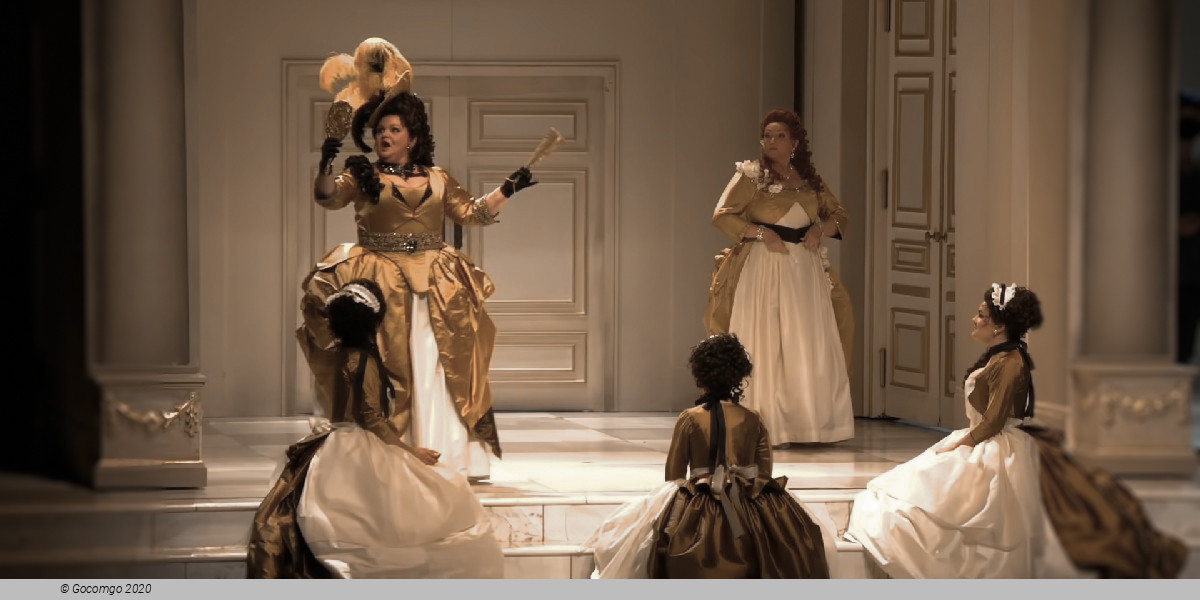
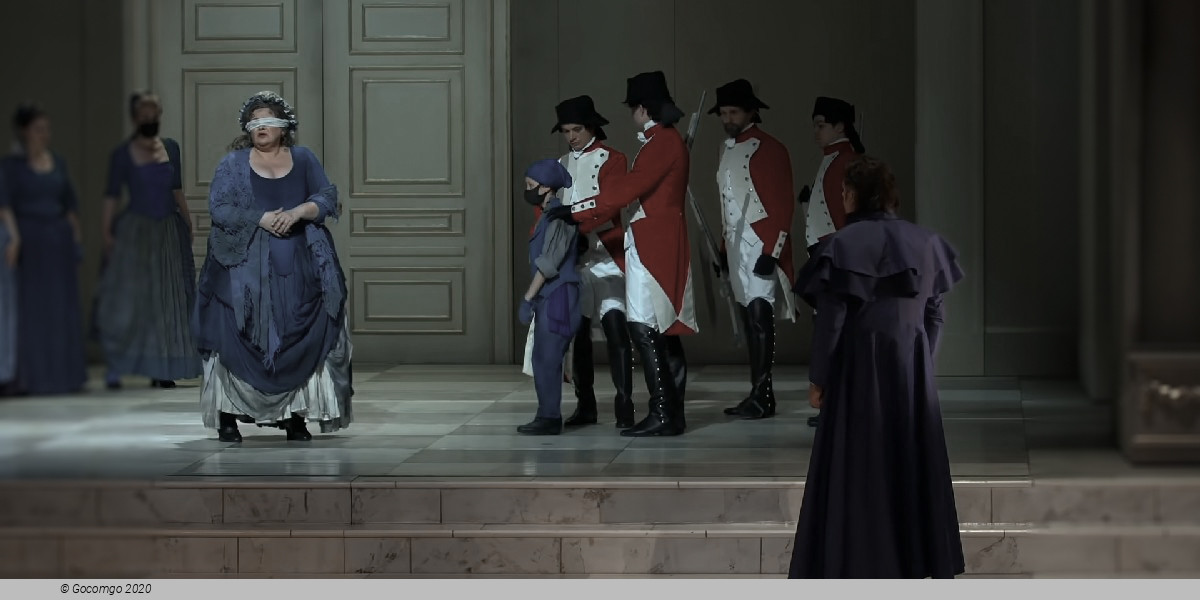
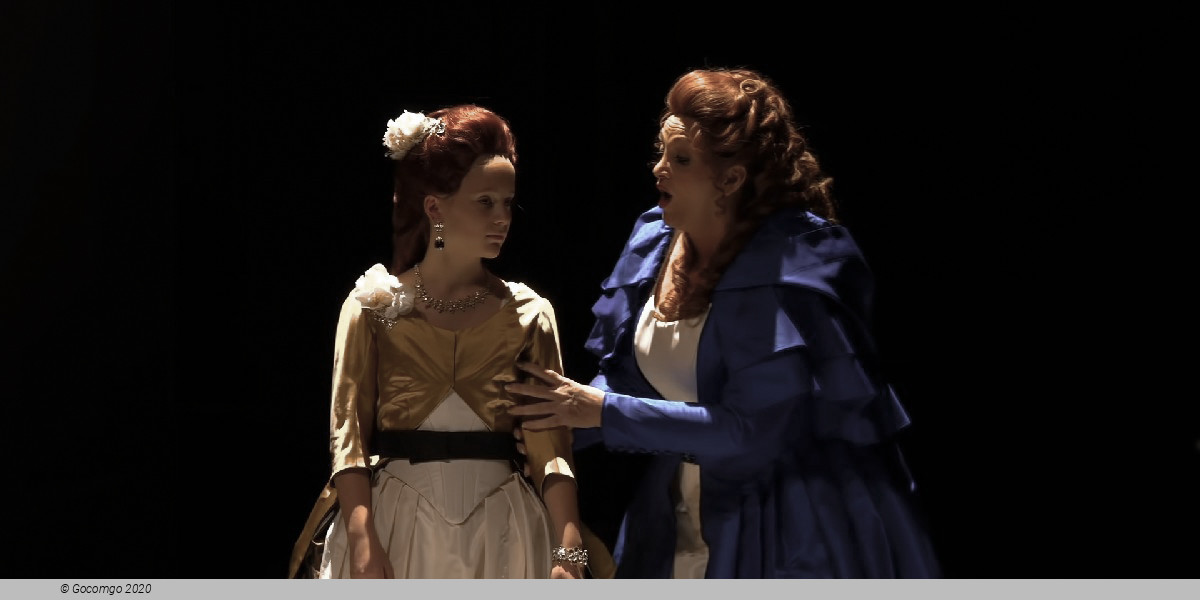
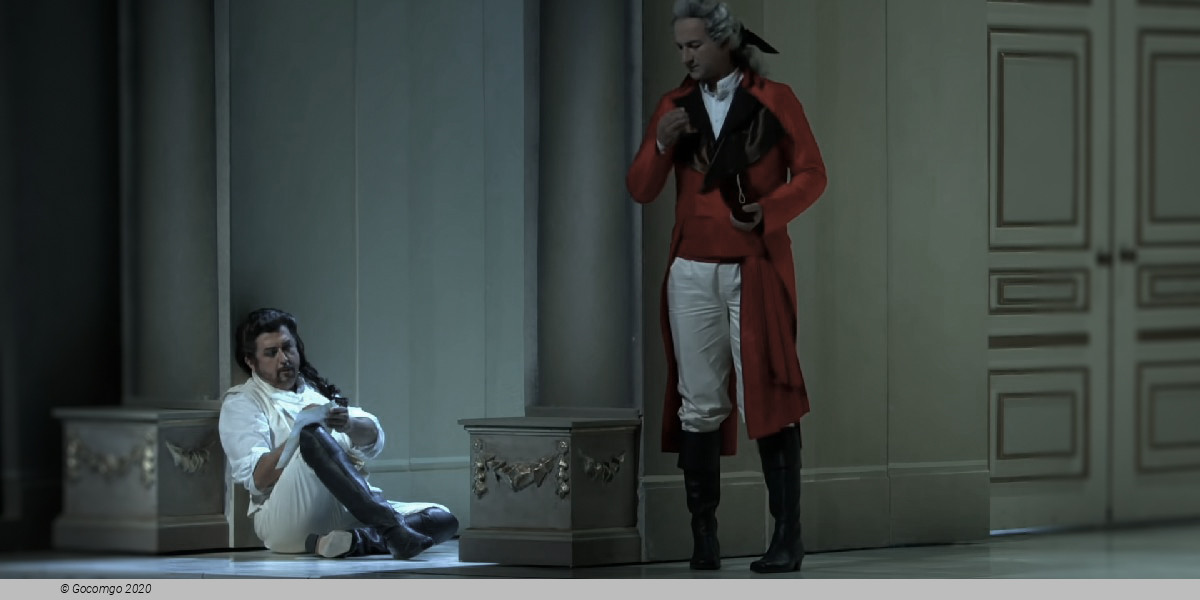
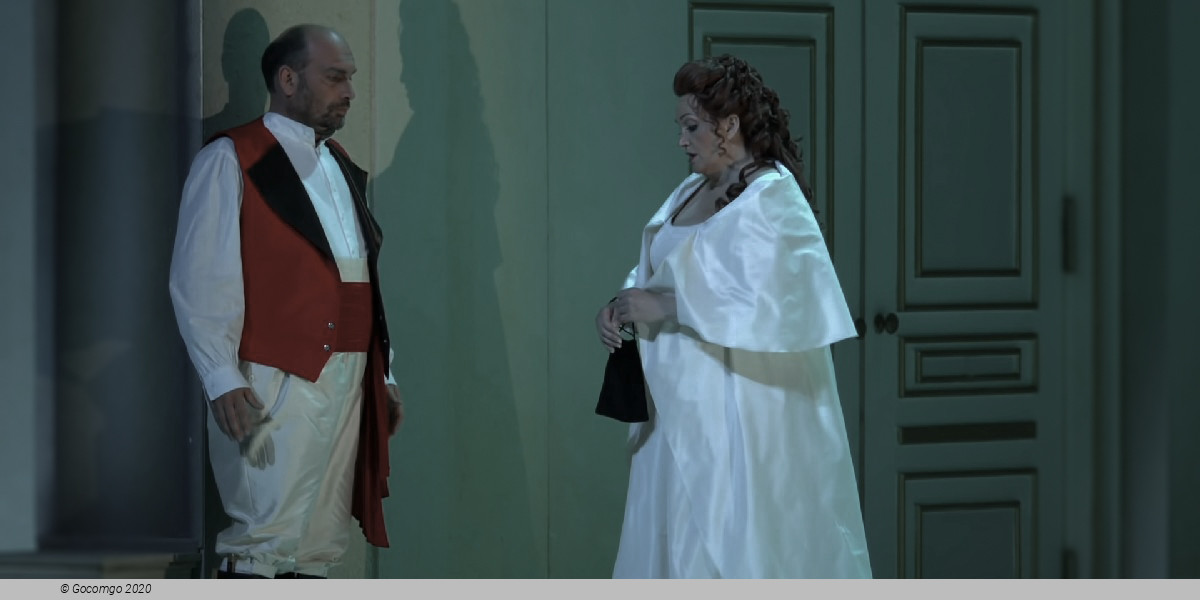
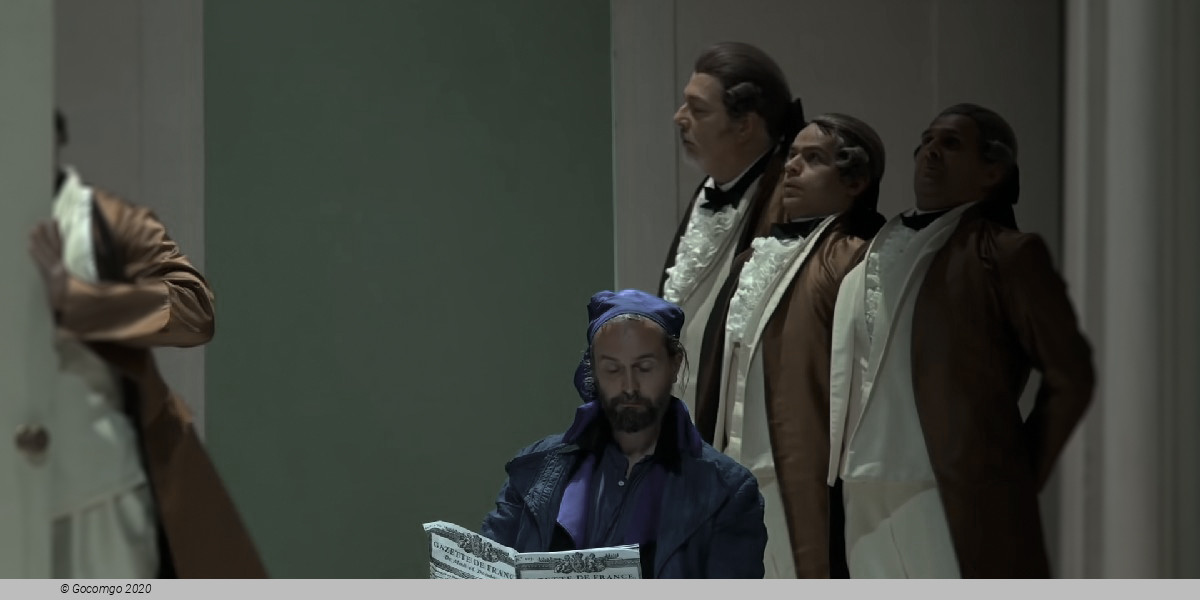
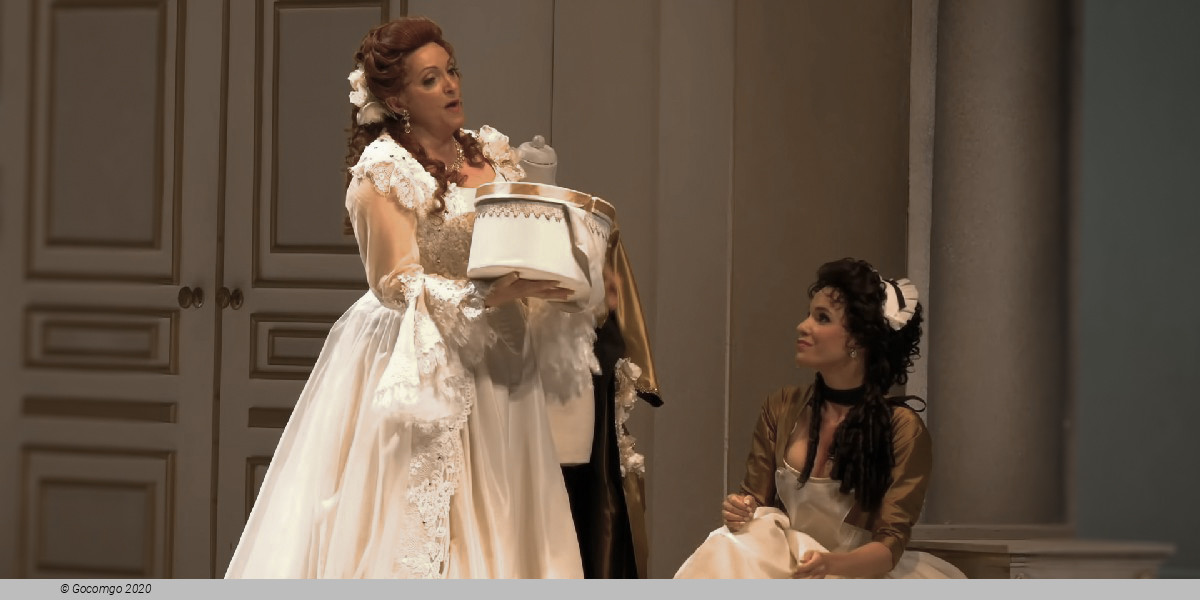
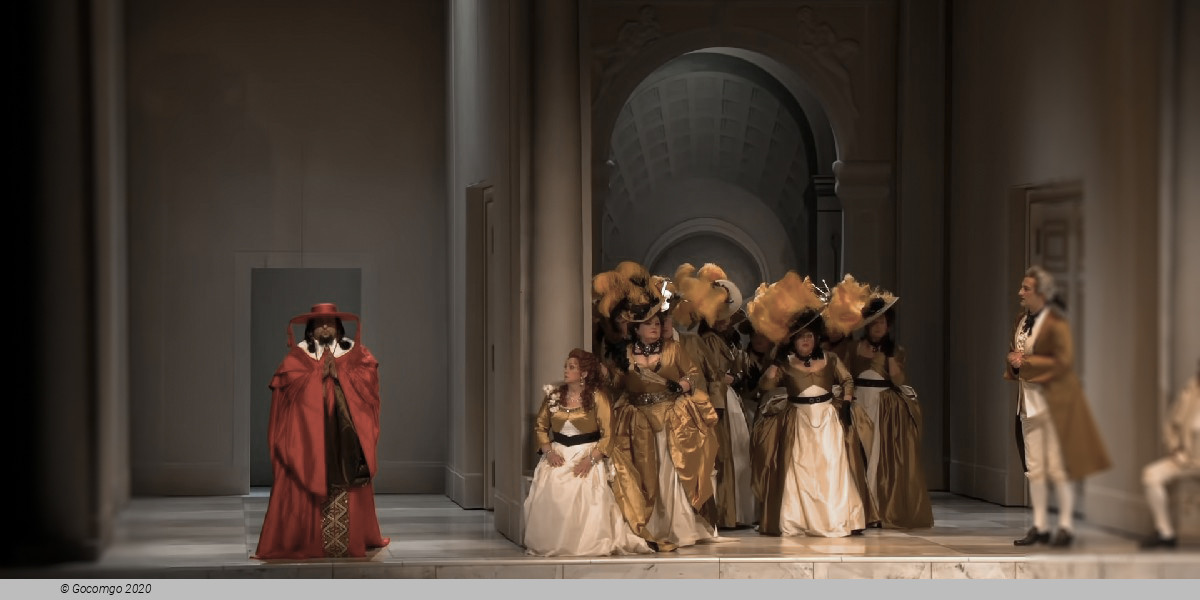
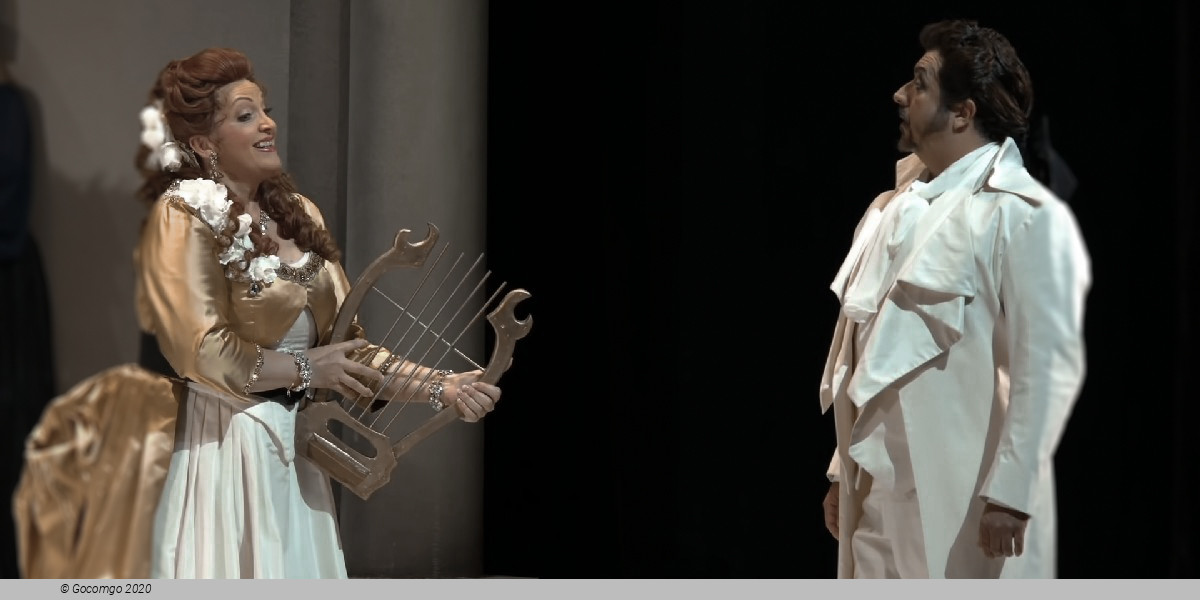
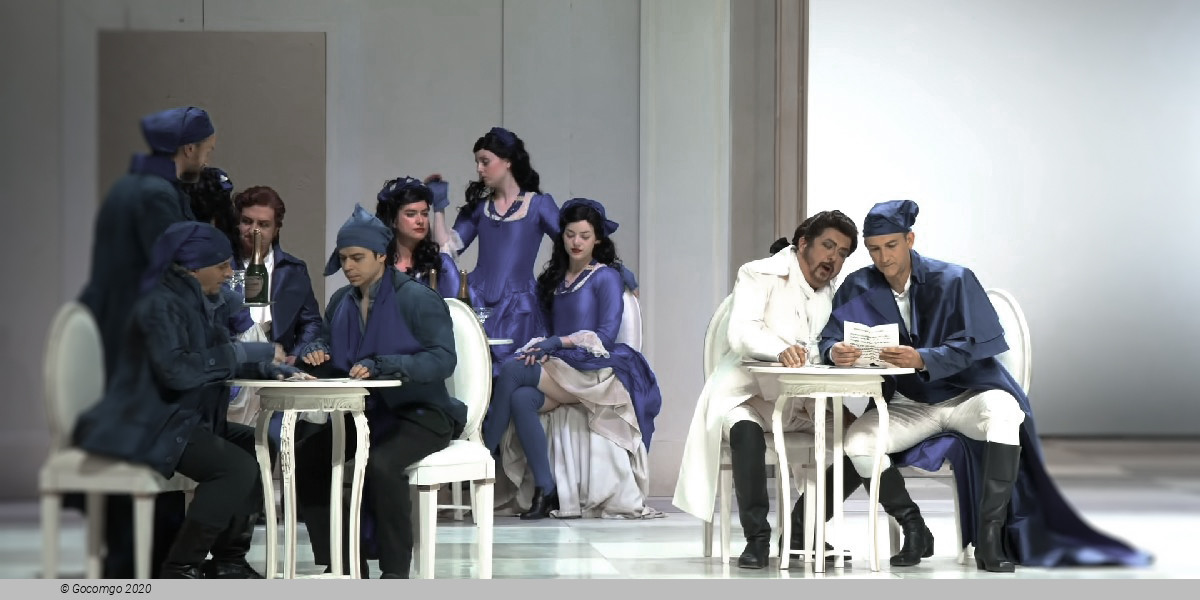
 Max-Joseph-Platz 2
Max-Joseph-Platz 2